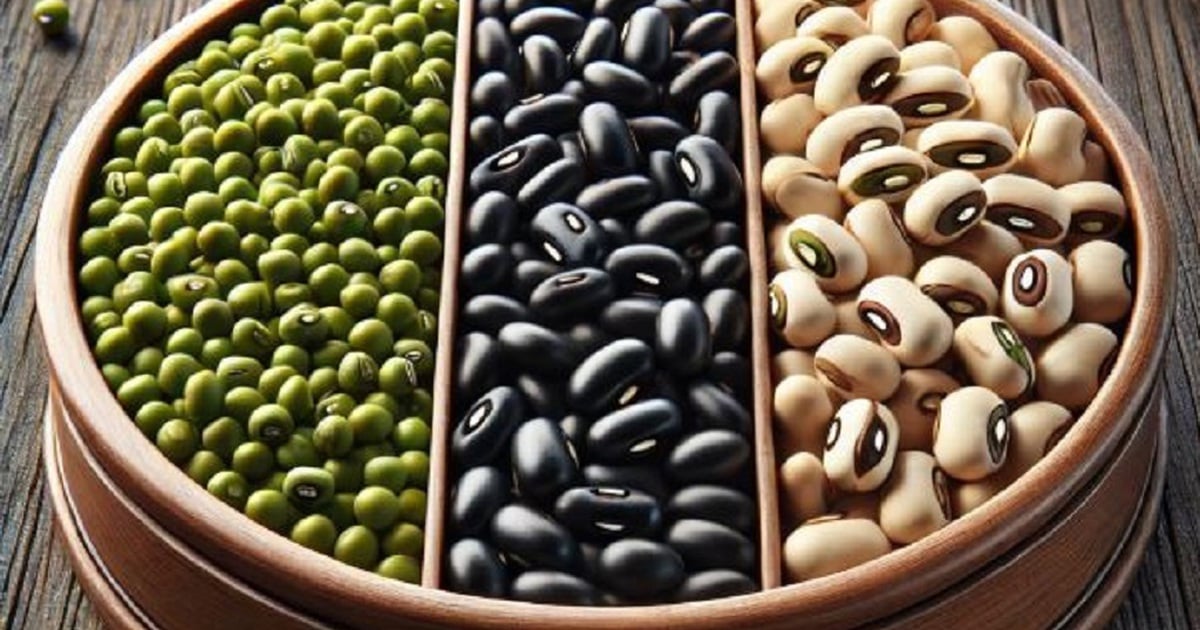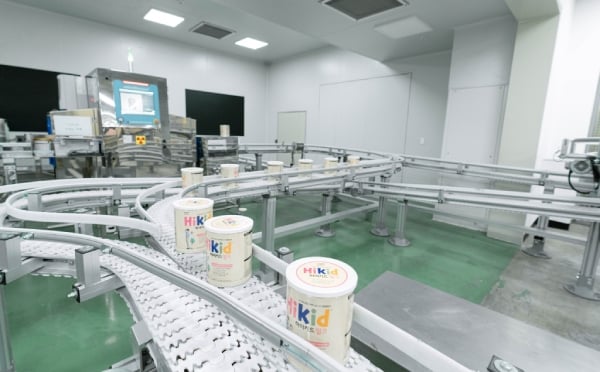Bell peppers are mildly sweet and not as spicy as regular peppers. They come in a variety of colors, from red to yellow to green. Bell peppers are packed with nutrients that are beneficial to your health.
A cup of chopped bell peppers contains less than 30 calories but provides up to 120 mg of vitamin C, 1.28 grams of protein, along with vitamins A, E, potassium, magnesium, calcium and many other nutrients, according to the health website Healthline (USA).

Bell peppers contain many beneficial nutrients, help prevent cancer and reduce blood cholesterol.
One of the most beneficial nutrients in bell peppers is antioxidants. These antioxidants help protect cells from harmful free radicals, thereby helping to reduce the risk of cancer.
In a study published in the journal Antioxidants , scientists found that carotenoid antioxidants protect heart cells and help reduce levels of “bad” LDL cholesterol and triglycerides. This benefit is present in all types of bell peppers, regardless of color.
Meanwhile, a study published in the journal Advances in Nutrition found that the main factor that helps bell peppers reduce blood cholesterol is their soluble fiber content. When entering the intestine, soluble fiber binds to cholesterol, thereby preventing the intestines from absorbing cholesterol.
This amount of soluble fiber also helps improve digestion, helps prevent constipation and maintains the balance of beneficial bacteria in the intestines. In addition, bell peppers are also rich in vitamin A and beta-carotene. These two substances have the effect of protecting the eyes and preventing eye problems such as macular degeneration and cataracts.
Vitamin A also plays an important role in maintaining healthy skin. Some research evidence also shows that bell peppers contain nutrients that protect the skin from the effects of ultraviolet rays and pollution, while stimulating collagen production, helping the skin to be smooth and maintain elasticity.
When preparing bell peppers, people need to remove the seeds and stems. These are the parts that can cause discomfort or indigestion. Removing the seeds and stems is very simple, just cut the bell pepper in half and use a knife to remove the seeds and stems.
Also, one thing to note is that the vitamin C in bell peppers is very sensitive to heat. To avoid losing vitamin C, people should prepare bell peppers by lightly sautéing or eating them fresh, according to Healthline .
Source: https://thanhnien.vn/ot-chuong-loi-ich-suc-khoe-bat-ngo-duoc-khoa-hoc-chung-minh-18525011919053729.htm


![[Photo] President Luong Cuong receives Lao Prime Minister Sonexay Siphandone](https://vstatic.vietnam.vn/vietnam/resource/IMAGE/2025/4/17/337e313bae4b4961890fdf834d3fcdd5)
![[Photo] President Luong Cuong receives Kenyan Defense Minister Soipan Tuya](https://vstatic.vietnam.vn/vietnam/resource/IMAGE/2025/4/17/0e7a5185e8144d73af91e67e03567f41)
![[Photo] President Luong Cuong receives UN Deputy Secretary General Amina J.Mohammed](https://vstatic.vietnam.vn/vietnam/resource/IMAGE/2025/4/17/72781800ee294eeb8df59db53e80159f)
![[Photo] Warm meeting between the two First Ladies of the Prime Ministers of Vietnam and Ethiopia with visually impaired students of Nguyen Dinh Chieu School](https://vstatic.vietnam.vn/vietnam/resource/IMAGE/2025/4/17/b1a43ba73eb94fea89034e458154f7ae)
![[Photo] Prime Minister Pham Minh Chinh and Ethiopian Prime Minister visit Tran Quoc Pagoda](https://vstatic.vietnam.vn/vietnam/resource/IMAGE/2025/4/17/18ba6e1e73f94a618f5b5e9c1bd364a8)
![[Photo] Hundred-year-old pine trees – an attractive destination for tourists in Gia Lai](https://vstatic.vietnam.vn/vietnam/resource/IMAGE/2025/4/17/25a0b7b629294f3f89350e263863d6a3)














































![[Video] Viettel officially puts into operation the largest submarine optical cable line in Vietnam](https://vstatic.vietnam.vn/vietnam/resource/IMAGE/2025/4/17/f19008c6010c4a538cc422cb791ca0a1)









































Comment (0)